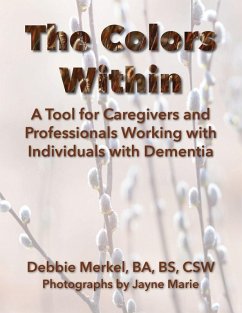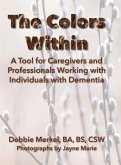It was my fourth week as a Hospice Social Worker, and it's my role to help patients and their families with end of life challenges. This includes assessing and anticipating any complex needs, problem-solving and resolving struggles, providing emotional support, and connecting to patients and their families. Although seasoned as a social worker, I was new to working with individuals with Dementia. The training I received taught me how to talk to someone with dementia. How to communicate. During the past twenty-five years, I received training, and obtained education and experience in working in crisis intervention, counseling, de-escalation, case -management. I was well-versed in reading people and situations. I knew how to establish rapport and to connect. As individuals, we all have an inherent need for connection. The benefits of connection are innumerable. I chose social work so I could connect with and help others. I felt confident in my skills and abilities. Until, I didn't. How does one connect with an individual who is only alert and oriented to him/herself? I felt helpless, questioning my decision to work in hospice. That is, until that day, during my fourth week as a Hospice Social Worker. I was making a routine visit at a Skilled Nursing Facility. I approached my patient as she was sitting in her wheelchair, in the main living area. I sat next to her and said her name. She looked at me, and resumed staring ahead. I held her hand and spoke words of affirmation. She continued to stare ahead. I glanced over my shoulder to the large bookcase filled with volumes of books. I walked over and pulled out a book - an encyclopedia of insects. Placing the book gently on her lap, I turned each page. I commented on the colors and the "ickiness" of several of the bugs. She began to also remark on the "ick" and the colors, too. Our entire life journey is about connection. The bonds we build with others. Finding the beauty in everyone and everything. And, expressing love and compassion. My wish for you is that you are able to use this book as a tool to connect with your loved ones and patients. And find comfort in doing so. What Other Readers Think and How to Use this Book The Colors Within is a book with exceptionally beautiful photography and verse. How exactly you use this tool will depend on who you are, the person you're supporting, and the specific situation. As one example, you may seat yourself on the individual's dominant side, then begin by holding up the book and indicating, "I have something I want to show you." Turn to a page and exclaim, "Oh, wow, look at this!" while you position the book between the two of you. Offer the opportunity for the individual to hold the book, or just to look. Along with your words, perhaps use your finger to gesture to something on the page, whether it is a picture or words. Pause. Provide time and space for the person to take in the information, consider it, and possibly respond - either with a look, a gesture, or words. The abilities of the individual may vary, so your abilities will need to be flexible as well. Try to encourage interaction without forcing conversation. Use this book as a possible opportunity to reminisce, to explore, to enjoy, or to find purpose. If you would like more information on how to use this wonderful resource to connect with those living with dementia, visit teepasnow.com.Teepa Snow, MS, OTR/L, FAOTA, Founder of Positive Approach to Care®
Hinweis: Dieser Artikel kann nur an eine deutsche Lieferadresse ausgeliefert werden.
Hinweis: Dieser Artikel kann nur an eine deutsche Lieferadresse ausgeliefert werden.








